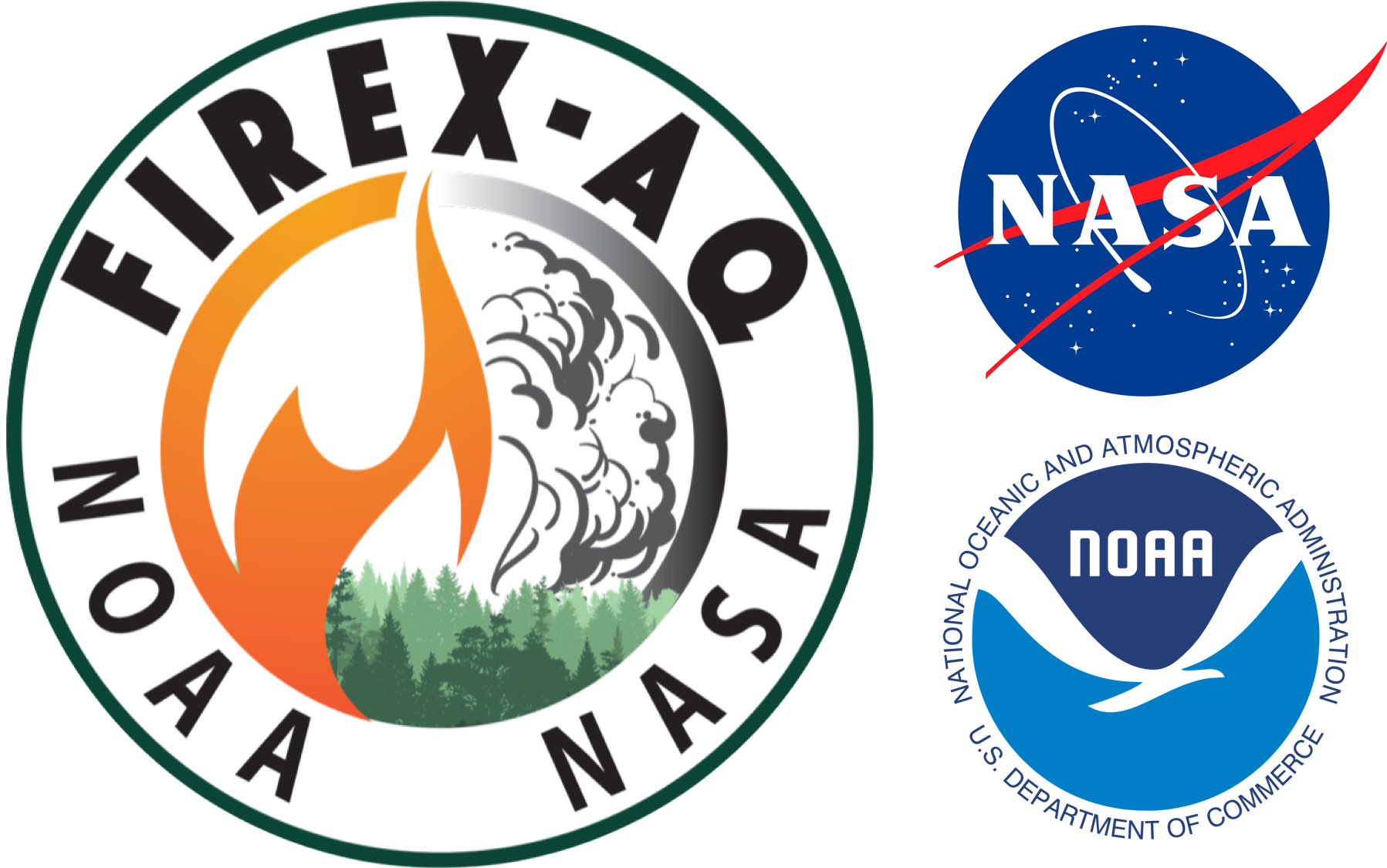WRF-Chem 3.9.1 with tracers
The University of Iowa is providing air-quality forecasts to be used for flight planning and assesment of fires in the FIREX-AQ field experiment, their emissions and transport. We are using version 3.9.1 of WRF-Chem using MOZART-4 with aqueous chemistry as chemistry scheme and MOSAIC for aerosols (see more specs in the table below). This version also includes tracers with no lifetime for understanding the impact of processes such like smoke plume rise. We aknowledge to Dr. Rajesh Kumar and Dr. Gabriele Pfister from NCAR that provided us with this modified version. Dr. Greg Carmichael and Gonzalo Ferrada will be in field in Salina, KS during August 2019 to help with the forecast briefings.
We anticipate that our forecasts will not be available on August 14-15 due to maintenance of our servers.
Forecast system set up
| Parameter | Details |
|---|---|
| Horizontal grid spacement | 8 km |
| Vertical layers | 52 levels. 19 levels below 700 hPa. |
| Forecast period | 96 hrs (4 days) with outputs every 3 hrs. |
| Initialization | Everyday at 12 UTC |
| Website update | Everyday around 11 PM(MT)/ midnight(CT) |
| West CONUS domain | From 19 July to 17 August 2019 |
| South CONUS domain | From 18 August to 05 September 2019 | Initial and boundary conditions |
| Meteorology | GFS [ref ] |
| Chemistry and aerosols | WACCM [ref ] |
| Biomass burning emissions | QFED2 [ref ] |
| Anthropogenic emissions | NEI2014v2 [ref ] |
| Biogenic emissions | MEGAN [ref ] | Other model configurations |
| Chemical scheme | MOZART-4 with Aqueous chemistry |
| Aerosol mechanism | MOSAIC (4 bins) |
| Physics scheme | Morrison 2-moment scheme |
| Convection scheme | Grell & Freitas (2014) |
| PBL scheme | Mellor-Yamada-Janjic TKE scheme |
| Radiation scheme | RRTMG |
| Photolysis mechanism | Madronich F-TUV |



